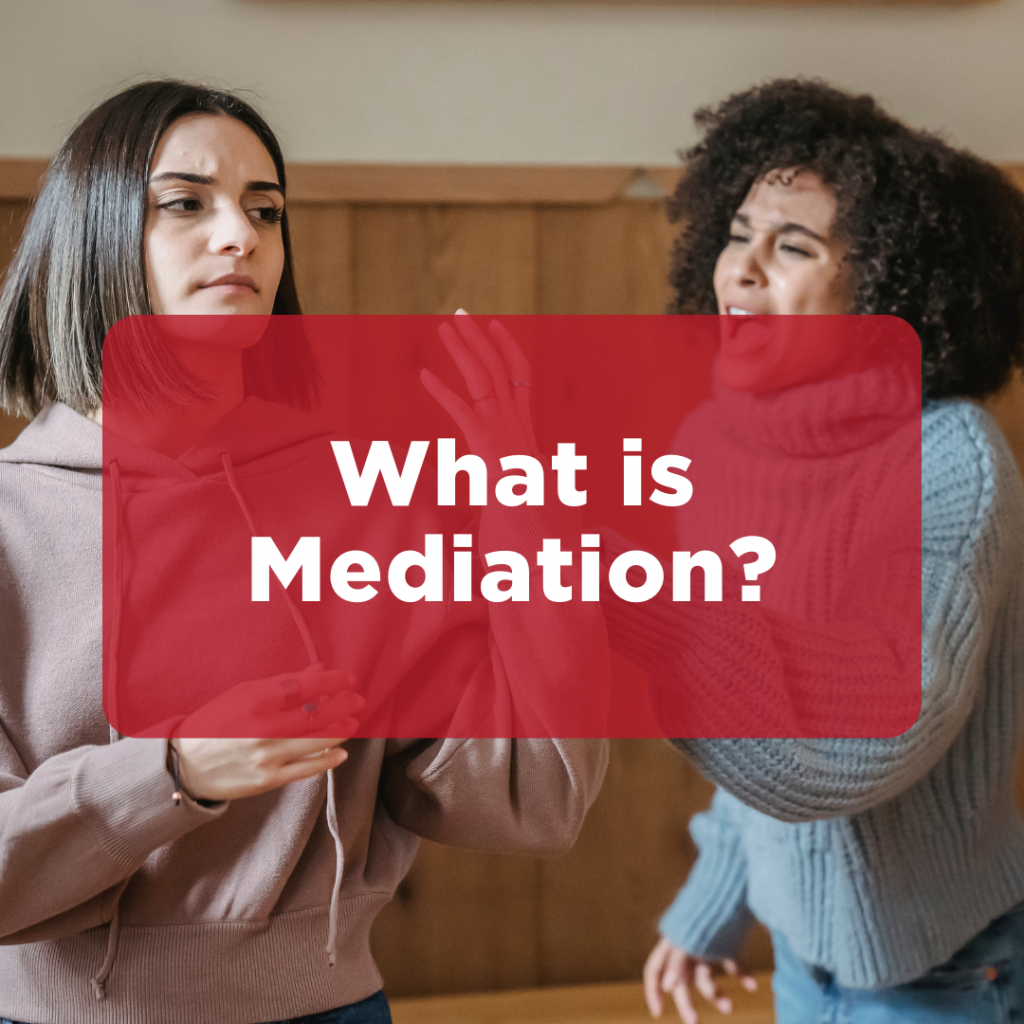What is Mediation?
Our legal system is versatile enough to incorporate different ways to resolve our legal disputes. While trials are commonly known to be a staple of our legal system, another method of resolving disputes is through the mediation process. Mediation is a quick process that allows the parties to circumvent the more complicated, and often very expensive, route of litigation and reach a solution. It is a process in which the parties who are in conflict sit down with a mutually selected neutral person, the mediator, to resolve their differences and reach a mediated settlement. This impartial person assists in negotiating and thereby reaching a resolution of the issues at hand. Therefore the mediator – unlike your attorney – is not advocating for your interests but rather, trying to reach an impartial decision.
Mediation can be private or court-ordered and usually can be undertaken in all types of civil disputes. The primary difference between private and court-ordered mediation is that private mediation is optional wherein the parties decide whether to undergo mediation, the time and place of the mediation, as well as who will be the mediator. Whereas a court order mediation is ordered by the court and is therefore mandatory with the court deciding the time, place, and location, as well as the mediator who will preside over the process.
The main difference between private mediation and traditional litigation is that in litigation the process is controlled by a judge who will issue a decision on the dispute at hand. The parties do not have much autonomy when it comes to the litigation process and must follow the oftentimes strict evidence rules to have their position heard. In mediation on the other hand, the parties have more autonomy, especially when it comes to determining where the mediation should take place, who will be present at the mediation, how the mediation will be paid for, how the mediation will communicate or interact with the parties, etc.
It is also worth pointing out that just because you agree to undergo a mediation does not mean that you are forfeiting or withdrawing from the litigation process. You can proceed with mediation concurrently with the litigation process. In other words, you do not relinquish your right to litigate your dispute just because you agree to go through a mediation that turns out to be unsuccessful. If the mediation does not end up resolving the dispute you can continue with existing litigation or you can commence to litigation.
What happens after Mediation?
The goal of the mediation is to reach a mutual agreement on the resolution of the disputes at hand. It can also include the commitment each party is making to the other, a summary of the understanding reached between the parties, the remedies available to the parties if they feel the agreement is not being honored by the other side, etc. A mediation agreement is an enforceable contract, akin to a court order, with which the parties must comply. In other words, a mediation agreement is a binding contract that is enforceable in a court of law. So, if a party simply tries to get out of a mediation agreement just because they have had a change of heart that party could liable to the court and the other side, possibly resulting in sanctions.
We believe there is more to the mediation process than all parties reaching a mutually agreed-upon resolution to their disputed issues. While that’s a common view of mediation and its goals, we understand the conflicts and issues that lead to legal actions often cause extreme stress and trauma. Trauma caused by abuse can take extensive work by professionals to resolve. This is why our firm is committed to providing our clients with trauma-informed legal services.
A key to these services is recognizing the trauma our clients and their families may have experienced prior to our involvement with the client. Understanding this, we make a deliberate effort to reduce the trauma of the legal process, minimize the “re-living” of traumatic experiences, and connect clients with experienced, trauma-informed mental health resources.
In short, we don’t see our partnership with our clients as beginning and ending with legal services.
Call experienced attorneys today
If you are looking for proficient and experienced attorneys to accompany you at a mediation or help you by providing you with trauma-informed legal services, call Marler Law Partners. We are experienced in helping clients in all types of civil mediation and advocating for their interests. Contact us today for a free consultation.

